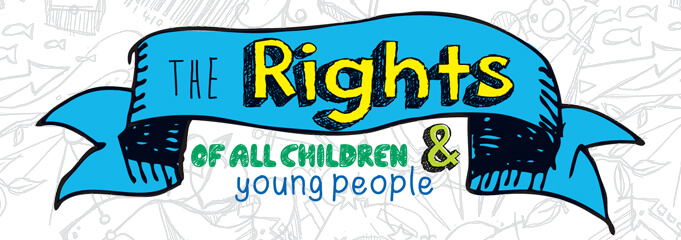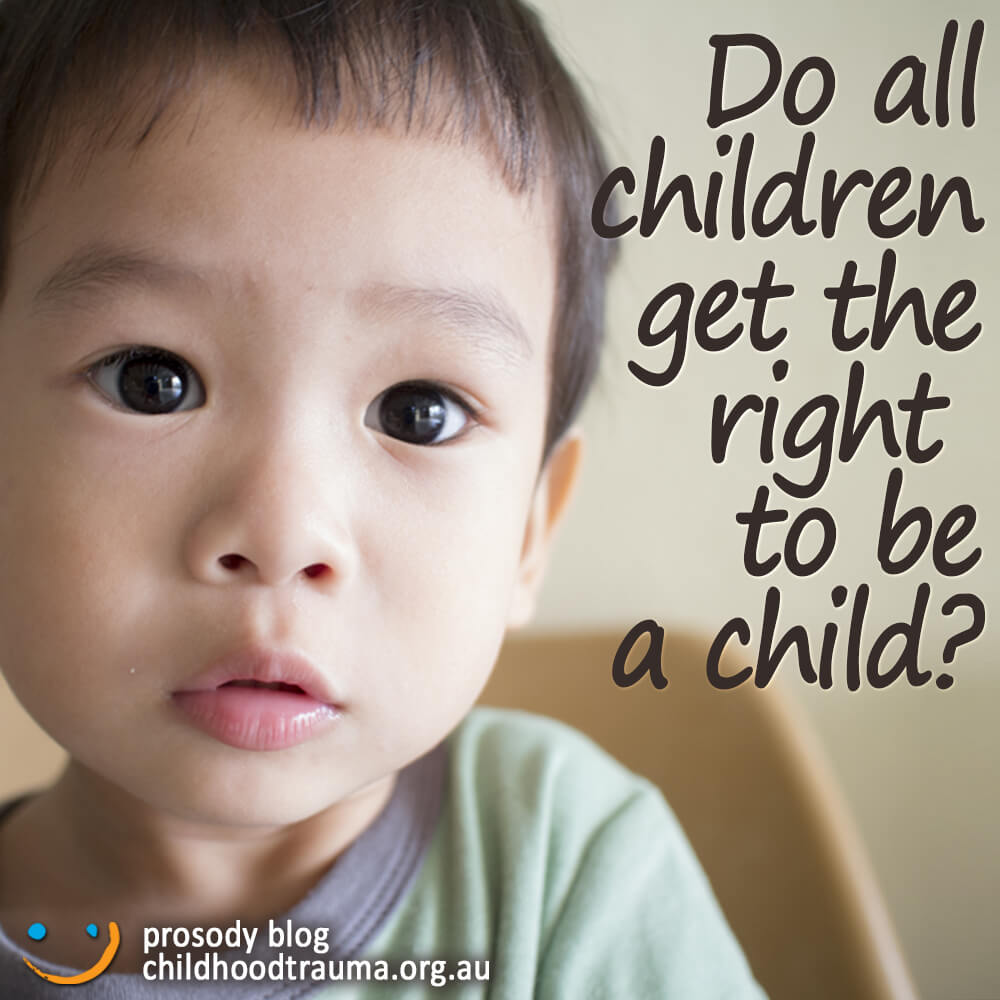
Children’s trauma in the context of war and relocation
This article was co-authored by Deb McKenzie & Maria Murray,Team Leader and Senior Training Consultant at the Australian Childhood Foundation.
Earlier this year, the Australian Childhood Foundation tweeted the following
Basic human rights, should be accessible by all humans – children included. Amongst other things, these rights include the right to: a name, food, be cared for, education, respect, not suffer at the hands of violence, rely on adults for support, play, peace, express themselves freely, safety and security.
In contradiction to their right to safety, many children worldwide are exposed to trauma in the context of war and forced relocation every day. And the numbers keep growing.
Children who arrive as humanitarian entrants to Australia bring with them a spectrum of trauma experiences and stories – sometimes about war, torture, killings, violence, rape, trafficking, disappearance, chaos, child slavery, hostage taking, destruction of homes and crops and imprisonment.
Then, many also find themselves having to manage a detention centre experience to add to the mix! Time in an Australian detention centre was described in 2004 by the Human Rights and Equal Opportunity Commission as having “out-stripped any previous trauma that the children have had. So it has gotten to the point where being in detention is the worst thing that has ever happened to these children.”
The complexity of all this trauma started us thinking about how we support and work towards helping their ‘healing journey’.
How will these experiences of real threat shape the functioning of these extremely vulnerable children?
- The combination of psychological, physical, emotional, immigration and forced relocation and resettlement trauma mean they are likely to have been affected right down to the very core of their being, compromising the way they understand themselves and the world around them.
- They will carry with them altered perceptions of their identity and the relationships which matter to them through their separation from family, community and culture.
- They will have endured experiences of marginalization, isolation and dislocation in the sort time they have been alive.
- They will often have a constant sense of being both unsafe and unworthy of protection.
- Their behaviour will have developed to ensure that they can survive. In this context, their behaviour will serve a self-protective purpose even when they are aggressive, hyper vigilant, withdrawn or unresponsive.
- They may struggle at school because these behaviours are commonly seen to be inappropriate in Australian education settings.
Children who arrive in Australia this way are also dependent on adults who are themselves often traumatised and unable to meet their developmental needs and address their vulnerabilities.
These clues about the heavy impact of such trauma has made us pause and reflect on what such children and young people need from the people and relationships around them to recover and begin to feel the joy that they so desperately need. In 1995, Bloom published research showing that the usual adult responses to the range of maladaptive behaviours displayed by traumatised children result in the reinforcement of the trauma and its key messages of powerlessness and hopelessness for change.
So, how can we work towards promoting rather than preventing recovery?
How can we support them and the adults around them to transform this trauma and support their basic rights?
We have some ideas from our work.
We should start by working to ensure that their needs for safety, security and healthy development are met. They should be able to live with a family in a community that is compassionate and cares for them. They should not live in detention where they are watched and restricted. The faster they can access a real relationships in neighbourhoods in which they can feel at home, the faster they can start to access the resources and hope that such relationships offer them.
Then, some of these next strategies have a chance to support their recovery.
- Reinforce to them in words and actions that they are physically and emotionally safe.
- Keep them close to safe adults and help them to manage their many sources of fear.
- Involve them in decision making about their future with an understanding that the idea of choice is unfamiliar and unknown as it has been taken from them.
- Help adults in their lives to become attuned to their pain and distress and respond by validating their trauma experience, never minimising their journey or story.
- Provide them with relationships which repair their experience of shame and offer joy.
- Give them opportunities to really connect with their community and the significance of their culture.
Do you work with children who have experienced trauma in the context of war and relocation?
Can you add to the list of needs above?
What activities, resources, techniques or tips can you share with the Prosody community about assisting their recovery?
